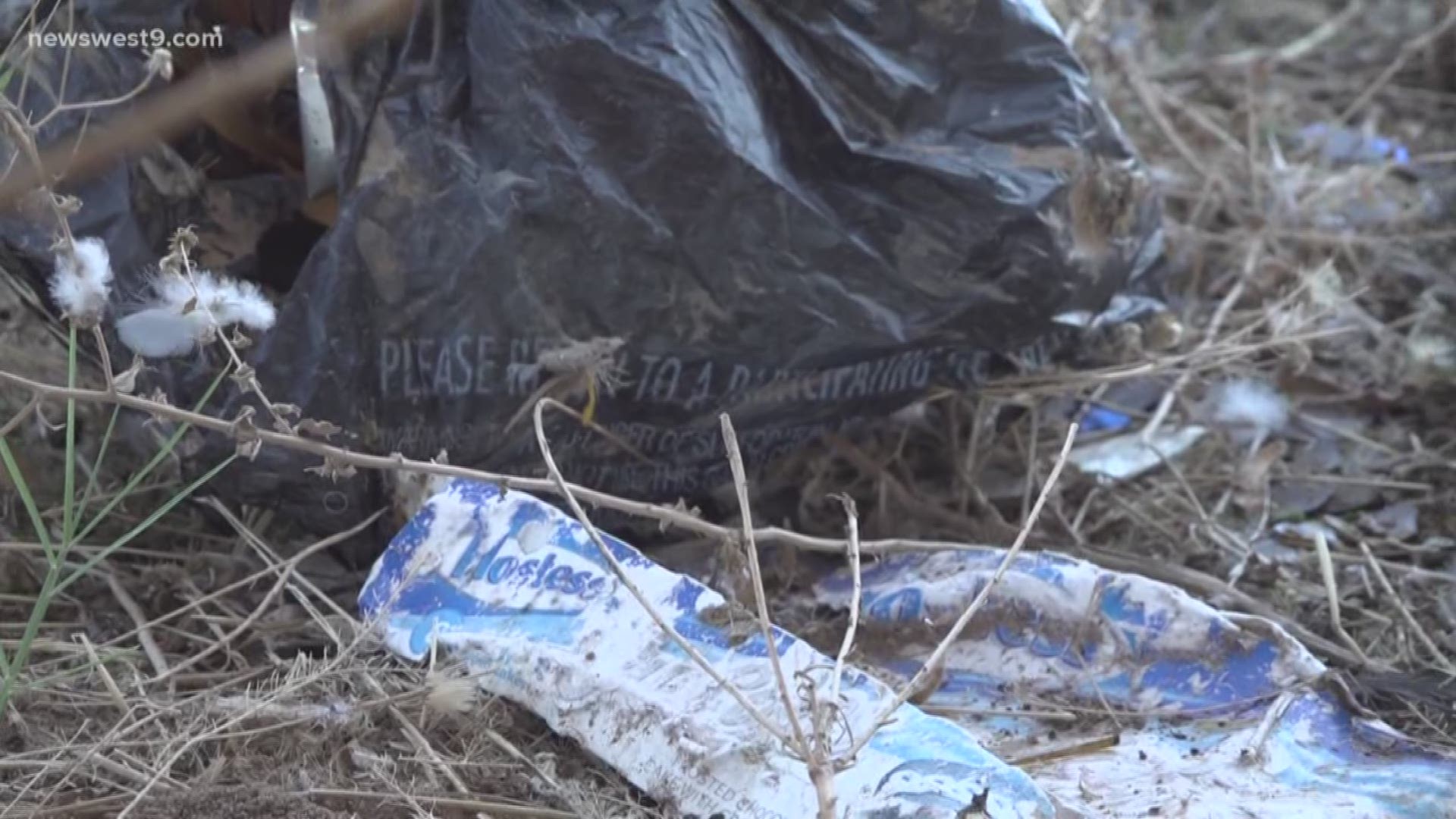MIDLAND, Texas — Midland County's lead environmental investigator Timothy Telck and his investigation team are in charge of finding and ticketing illegal dumpers.
The most recent case involves a man caught on their cameras dumping the body of a dead dog a week and a half ago.
They posted his picture on social media, asking the community to help identify the man, but he still hasn't been caught.
"Really the only information we have are the photographs," Telck said. "That's an active dump location that we have the cameras at that we monitor on a regular basis and unfortunately the way they operate, we weren't able to get his license plate."
He's being charged with a class b misdemeanor for improperly and illegally disposing of his dead dog.
"As bad as it's going to sound, it's the same," Telck said. "It's being treated as what's termed as solid waste, any other trash."
The dog weighed more than five but less than 500 pounds, so this man's charge would result in confinement in a county jail up to 180 days or a fine of up to $2,000.
But if he turns himself in or agrees to clean up his mess, his sentence could be less.
"If it's not disposed of properly, it's going to begin spreading diseases," Telck said. "Getting people sick, so the trash has to go."
So what's the correct form of disposal?
County officials say it's burying your animal in your backyard at least 300 feet from water sources, 200 feet from property lines and three feet underground.
You can also take your animal to a vet or pet cemetery.
The Texas Commission on Environmental Quality (TCEQ) and the Texas Animal Health Commission (TAHC) say that an animal must be properly disposed of within three days of death.
As for this dead dog, he was taken and properly buried at the dump by the County Road and Bridge Department.

